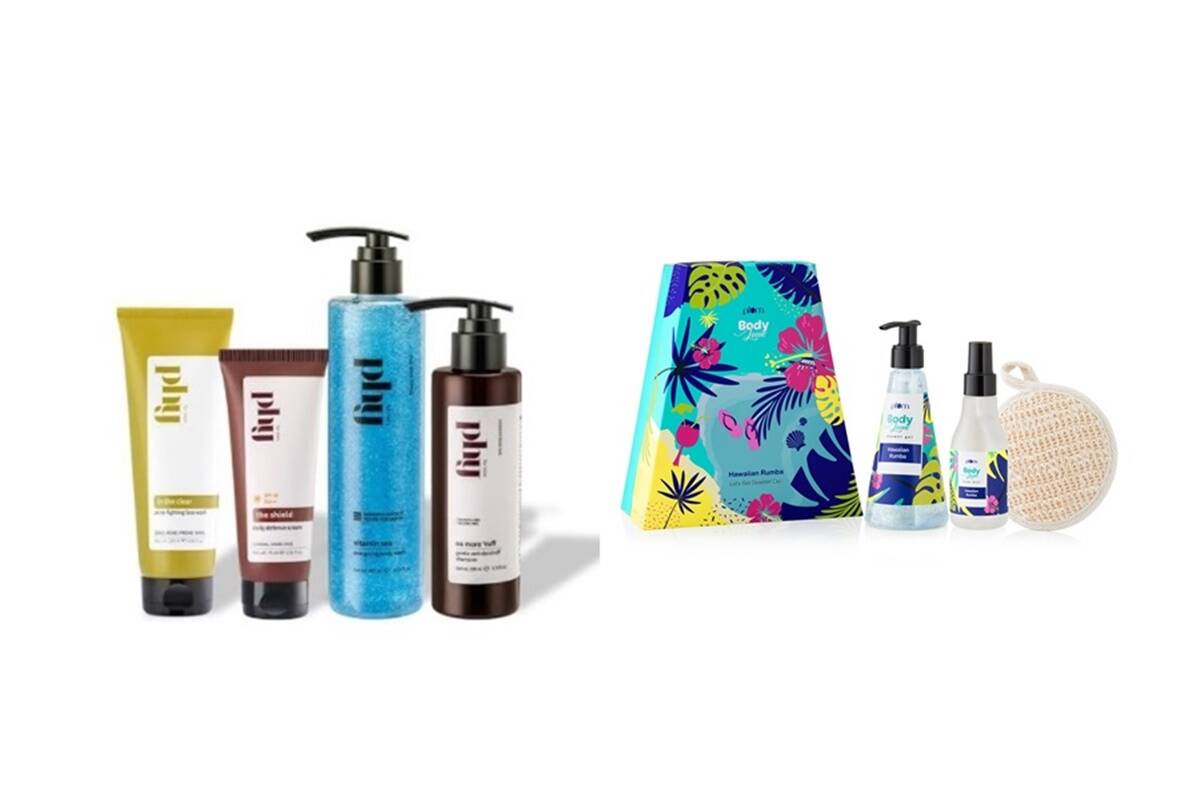Products You May Like

India is witnessing a boom in the direct-to-consumer (D2C) personal care category, be it hair care, skin care, beard care, fragrances, or oral care. Instagram, for instance, is flooded with ads from several D2C personal care brands promising to either be vegan, herbal, made-to-order or following the principles of Ayurveda.
According to Euromonitor, India’s skin and hair care markets were together estimated to be worth Rs 38,339 crore in 2020. The overall beauty and personal care market, which includes categories such as fragrances, men’s grooming, baby care, bath and shower products, was worth Rs 1,04,708 crore.
Related News
As the market expands, the number of such brands is multiplying every year. Shankar Prasad, founder, Pureplay Skin Sciences, the company that owns Plum, Phy and BodyLovin’, notes that the number of such brands listed on Nykaa alone has grown from just 300-400 in 2014 to over 2,000 in 2020.
Personalising products is the latest trend. How viable is it, though?
Tailor-made
Rohan Agarwal, director, RedSeer, says that the beauty and personal care market has been one of the most flourishing categories in the D2C space. Because consumers tend to use as many as 10 different personal care brands for their daily needs, the category lends itself to experimentation.
When Prasad launched Plum in 2013, e-commerce was just taking off in India. The team, he says, wasn’t sure if people would invest in high-touch products purely based on what they see online. “Now, at least in urban centres, people default to online purchases; this has only accelerated in the last year,” he adds.
The company, which now stocks its products offline too, earns 65% of its revenue from online sales. And the basket size has increased from about Rs 850 in 2019 to Rs 1,100 in 2021.
Ingredient-based positioning is prominent in this category. For instance, Mikami claims its products are 100% organic and 100% cruelty-free; Vedix says its products are created by Ayurvedic physicians; another brand Wow Skin Sciences claims all its products are free from sulphates, silicones and parabens. Meanwhile, Bare Anatomy customises products for its users. Agarwal says, “Consumers value tags like chemical-free, naturally sourced ingredients, and products that target specific hair or skin care concerns.”
These brands operate in the masstige category, and have face cleansers in the range of Rs 300-400, while shampoos that address specific conditions cost upwards of Rs 600.
Cost of customisation
Brands like Bare Anatomy and SkinKraft have introduced hair and skin quizzes to recommend unique solutions to every user. For such brands, scaling up could be a challenge. “We can do one-tenth of what mass brands can manufacture in a day,” informs Rohit Chawla, founder, Bare Anatomy.
Customisation also means these brands cannot sell products on marketplaces. Analysts say that to achieve scale, these brands will have to focus on the most popular SKUs and make them available on marketplaces. “Customised products lend themselves to the subscription revenue model. And once there is a formulation that has reached critical mass, a brand can consider putting that up on marketplaces,” says Anand Ramanathan, partner, Deloitte India.
Chaitanya Nallan, co-founder and CEO, SkinKraft and Vedix, says he is following a blended approach to reach a wider audience. “Most profiles fall into some broad buckets. Based on that, we make pre-manufactured variants that can be sold on marketplaces.” SkinKraft products are available on select marketplaces; however, customisations based on the colour and fragrance of the products follow the real-time manufacturing model.
Amit Ahuja, founder, Mikami, a brand that makes oil pods for hair care, says customisation of products is complex even from the licensing standpoint. Ayurvedic products are approved by the AYUSH Ministry, and the regulations require brands to explicitly list the exact amount of every ingredient that goes into a product. Therefore, ayurvedic formulations cannot be customised by brands.
Other beauty and cosmetic products are regulated by the Cosmetics Rules 2020 and BIS, under which the upper limit for an ingredient is stipulated. “While there is no requirement to maintain specific composition of cosmetics, the manufacturer is to provide a declaration affirming compliance with good practices and other set of guidelines,” says Atul Pandey, partner, Khaitan & Co, a law firm. Brands are using this ambiguity to their advantage.
Follow us on Twitter, Instagram, LinkedIn, Facebook
Get live Stock Prices from BSE, NSE, US Market and latest NAV, portfolio of Mutual Funds, Check out latest IPO News, Best Performing IPOs, calculate your tax by Income Tax Calculator, know market’s Top Gainers, Top Losers & Best Equity Funds. Like us on Facebook and follow us on Twitter.
BrandWagon is now on Telegram. Click here to join our channel and stay updated with the latest brand news and updates.
